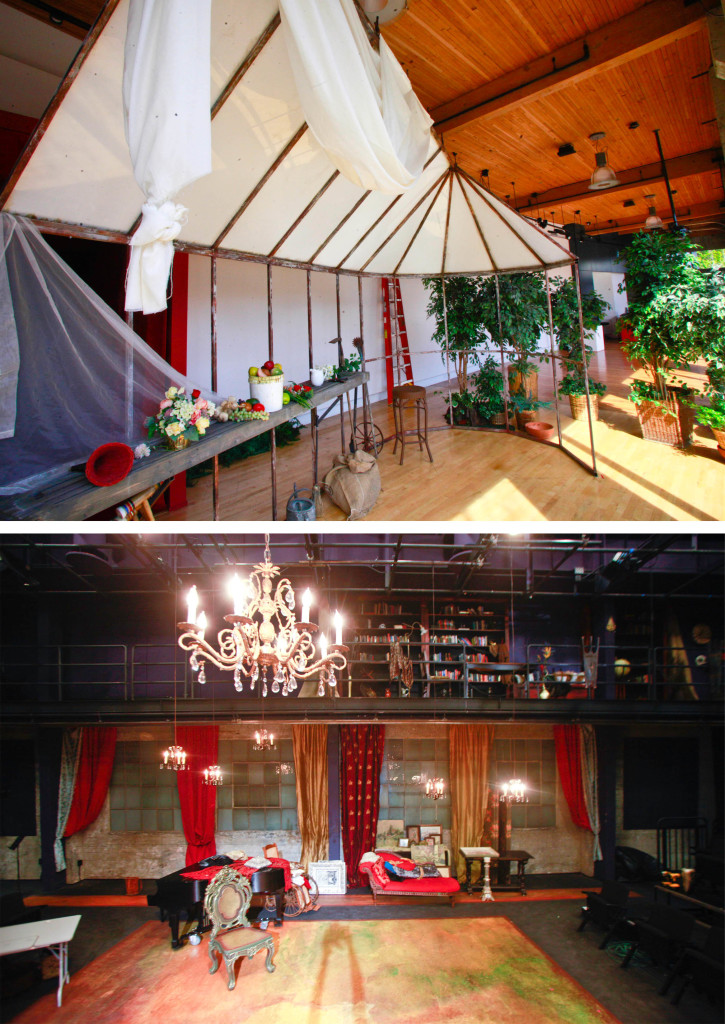Even though the title of the Seattle University upcoming production might remind you of television shows from your youth, “Fefu and Her Friends” is not a lighthearted play.
The point is to get you to think.
Written and first produced in 1977 by the Cuban-American playwright María Irene Fornés, “Fefu and Her Friends” follows a group of seven women in the spring of 1935 as they prepare a presentation about fundraising for the arts in education.
But Director Ki Gottberg said the play focuses on much more than promoting the arts. The play takes the audience “on a journey into intimate female areas, and those would be areas of the heart and the soul.”
“This play is seen by many people in the theatre as sort of ‘the play’ of second wave feminism,” said Gottberg. “It focuses on the way that women’s psyches are bombarded by culture and how they become disabled by the messages they hear. It’s also about the camaraderie that women have with each other, and the alienation that women feel when they’re with each other.”
The experimental play avoids following a masculine Aristotelian plotline and also calls for active participation from the audience. The Seattle U production is not limited to one stage; instead, the audience will be asked to get out of their seats and move between the production’s five sets throughout the play.
Gottberg—who was cast in the role of Emma 25 years ago and performed the play under Fornés’ direction at what is now the Hugo House—is glad to give her students the opportunity to see what the women’s rights movement was like in the 1970s.
“This is what it was like for us—these were some of the issues we faced,” she said. “We’re looking at chunks of history where women have come through a struggle, and pondering, how much has it really changed?”
Freshman Becca Richards, who portrays Emma in the Seattle U production, explained that she was interested in the play because of its ideas and commentary.
“Now that we’re in 2013…we don’t have a very dramatic women’s movement like that of the ‘70s,” she said. “It’s different because we have to do a lot more research about what it was like to be a woman in the ‘70s and ‘30s, how to play those characters now, and how to show the audience some of these issues that they’ve probably never heard before.”
Richards feels strongly connected to her character and the challenges Emma faces.
“I keep telling people that this play is getting into my head and messing with my mind, because each issue that we talk about is so pertinent to my life right now, and also the lives of my peers,” she said. “But it’s just strange, because I feel like I’m constantly living in my character outside of the play.”
Sophomore Kylie Spillman, who plays Cindy, said that while the play is lesser known than most, it helps identify the struggles of modern women.
“I feel a lot of our societal sexism is very subtle these days, and I feel that this play highlights these subtleties,” said Spillman.
“Today, we’re still trying to figure out the individual woman—it’s progressed a lot from the 1930s, and the 1970s to today, but we’re still trying to discover,” said freshman Bridget Pretz, who plays Sue in the production. “This play shows that everyone is important and that everyone has a story to tell.”
As one of the few men in the crew of 40 to 45 individuals, sophomore Matt Weingarten—the production’s stage manager—hadn’t really thought “about feminine psychology that much” prior to the production.
“This play really makes you think about what it’s like to be a woman in this society, and it’s really fascinating to see what women struggle with, things that I’ve just been taking for granted,” said Weingarten. “One of the main themes in the play is how our society tends to limit strong women because there’s a power structure that is ‘better for men’—being able to see that more clearly has been illuminating for me.”
Weingarten, Gottberg and the rest of “Fefu’s” cast and crew believe that the audience may be confused by the “radical” play.
Weingarten hopes the audience will take the time to “reflect on our society, because there is a reason that [Gottberg] did this play—it’s to make light of women in our society, especially strong women in our society, and what they face.”








